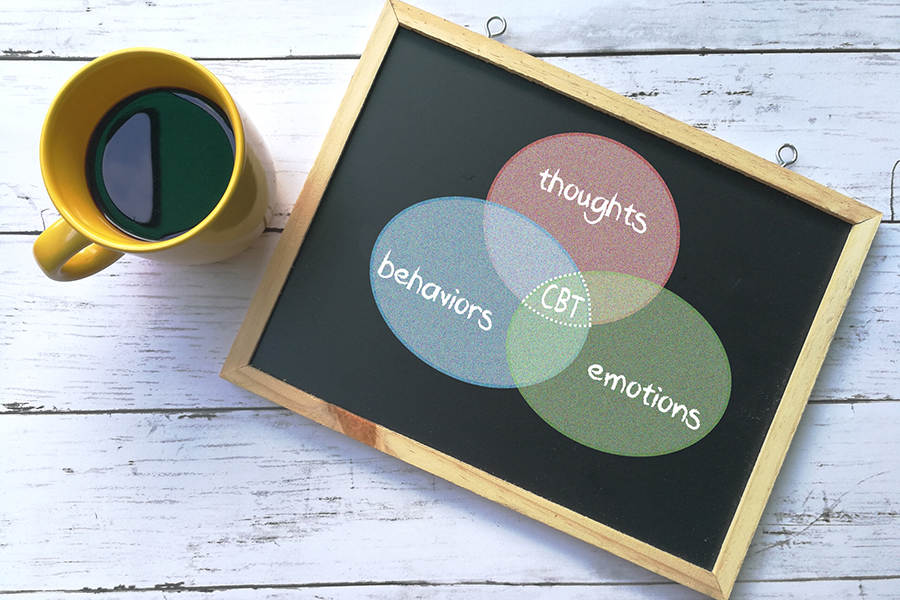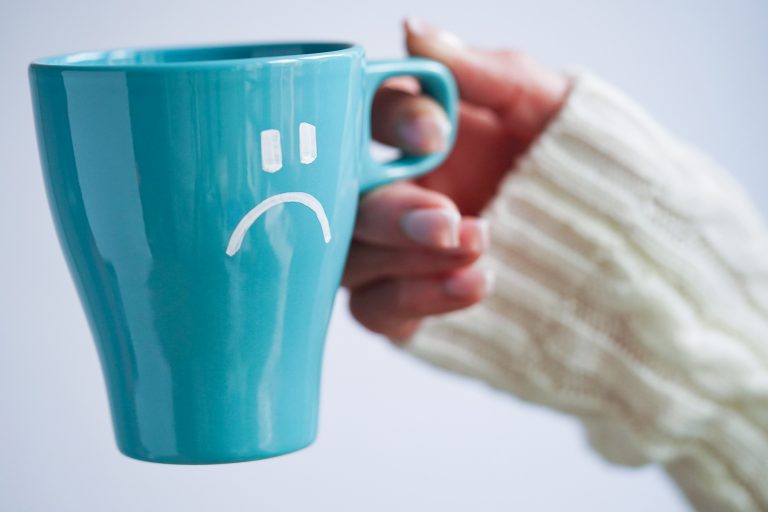Cognitive Behavioural Therapy or CBT is one of the many tools we use at our private rehabilitation centre to help our patients deal with their addictions and start their journey to lasting recovery. This treatment works very well for addicts, because it changes thinking and behavioural patterns and is an excellent way to break negative habits such as drinking and taking drugs in a relatively short period of time.
This type of therapy helps you to understand how thoughts and feelings affect how we act and allows us to take control back from our subconscious. It is a way to unpick the conflict which rages in all addicts, between the need to drink or take drugs, and the knowledge that it is damaging their health, their family and probably ruining their lives.
How CBT therapy works and what you can expect from your sessions
During a CBT session you will be with a specially trained and experienced therapist with experience of using CBT in the context of addiction recovery. Your first session will be speaking to you about your life, background and issues around addiction, getting to know you and making sure that CBT is the right treatment for you. At this point they will suggest a course of treatment – how many sessions and how often, and how that will fit in to the rest of your programme at our luxury addiction treatment centre.
Your sessions will be aiming to break down the complex problem of addiction into separate, and manageable parts. The therapist will help you identify what thoughts and feelings are leading to the negative behaviours that you’re exhibiting, be that drinking, taking drugs or compulsively gambling. Once those “unhelpful” thoughts, feelings and behaviours have been identified, your therapist will be able to help you to work out how to change them, and get you back into control of the situation.
In between your sessions, your therapist will ask you to practice making these changes in the safe environment of our private rehabilitation centre. Although our programme is based on abstinence, so you will not be able to drink or take drugs while you’re with us, this will not stop your mind bringing up upsetting and negative thoughts that make you want to use again. This is when you can try to practice what the therapist has taught you, question the thoughts and try and reframe them, replacing them with more helpful thoughts and feelings. It will feel hard and strange at first, but with practice it will start to feel more natural, and enable you to get used to the process and see for yourself how differently you can feel.
At each further session your therapist will ask you how the practice has been, deal with any problems you have faced and make other suggestions for getting over these difficulties. You will come away with skills that you can implement for the rest of your life, this is why it’s such an effective treatment which can make lasting change in just a few weeks or months.
What are the most common CBT Strategies?
Your therapist is likely to use CBT strategies such as cognitive restructuring or reframing, where they will help you look at negative thought patterns and how it leads to your actions, and then teach you how to reframe these thoughts to become more positive.
They can also try guided discovery, where they take you from your existing viewpoint or mindset and ask you a series of questions to challenge your beliefs and start to learn to see things from other perspectives, broaden your thinking and understand that there is another way from how you’ve been living your life up to this point.
You may be asked to write a journal to allow you to connect with thoughts and come to the next session with a better understanding of those thoughts, and how they make you feel, and can trigger a desire to go back to your old, destructive habits and actions. They will often use relaxation and stress reduction techniques to help you deal with stressful situations without reaching for your old crutch of drugs or alcohol and instead implementing deep breathing and other relaxation techniques to put you back into control.
They may also use role playing to prepare you for how you will deal with difficult scenarios in the outside world, such as someone offering you a drink, or inviting you to a pub. Practicing saying no, or making alternative suggestions in a safe space is a great way to reduce your fear. It will allow you to become comfortable solving these problems, and communicating in the right way, so that it does not feel frightening and difficult when you are faced with these scenarios when you return home.
Using CBT after leaving residential rehabilitation
CBT can be helpful to continue when you leave the safe space of rehab and your old and damaging behaviours are suddenly a real threat to your recovery. We know that temptation is everywhere when you leave a private rehabilitation centre, and so your therapist can continue with your sessions while you’re at dayhab, or through our online rehabilitation programmes so that when you’re faced with the temptations, you have regular support to remind you of the tools you have, and to offer you new ideas and coping strategies for changing those thoughts and feelings so that drinking or taking drugs does not feel like the only thing that you can do.
When you are out of rehab, your therapist, or a trained sober coach might try exposure therapy to help you to confront your fear of relapse or going back into a triggering environment and guiding you on how to cope right there and then. This builds up confidence that if you do have to be in a place where people are drinking, that you know you have the skills and the tools not to fall back into that old habit. This can be combined with behavioural experiments to predict what you will think, feel and do in this worrying, or triggering environment, so that you can see that it does not necessarily lead to a relapse and you are in control of that behaviour.
CBT really is an excellent therapy to develop skills, change your mindset and set you on the right path for a lasting recovery.
Cognitive Behavioural Therapy Near Me
At The Bridge we offer Cognitive Behavioural Therapy as part of our addiction treatment programme in our private rehabilitation centre in Marbella. We offer residential rehabilitation options, dayhab if you live near us in Marbella, or we have online addiction programmes including CBT so you can access a cognitive behavioural therapist specialised in addiction wherever you are in the world.
You can also go to your GP and ask to be referred to someone offering cognitive behavioural therapy near you, or search for private CBT therapists in your area. The NHS has written a helpful article about CBT to help you feel more comfortable about what it is and what to expect. We’d advise that you admit that you are seeking help due to addiction. This will allow you to be matched with the right therapist, with experience of dealing with addiction and implementing CBT techniques in this way.
We really hope that cognitive behavioural therapy helps you to start working out how to beat your addiction and lead a happy and healthy life free from the burden and pressure of addictions. Feel free to contact The Bridge Marbella if you have any questions or concerns or would like us to explain how we can help through our personalised addiction recovery programmes.




